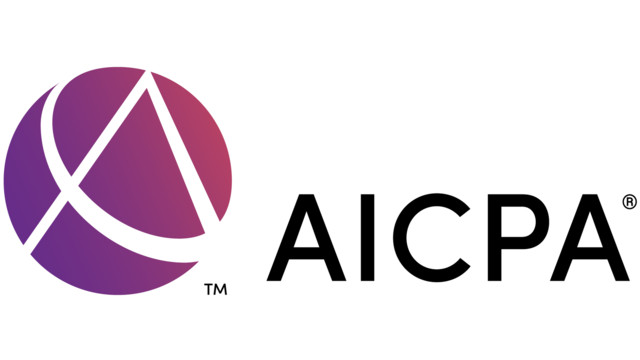AICPA News is a round-up of recent announcements from the association.
AICPA Honors William Balhoff with the Gold Medal of Distinction
The American Institute of CPAs recently announced that William “Bill” Balhoff CPA/CFF, CGMA, is the recipient of the 2022 AICPA Gold Medal Award of Distinction.
The Gold Medal is the highest honor granted by the AICPA. Since 1944, it has been bestowed upon CPAs whose influence on the accounting profession has been especially notable. Jack Finning, CPA, CGMA, and chair of the AICPA awards committee, presented Balhoff with the award during the fall meeting of AICPA’s governing Council.
Balhoff’s volunteer positions with the profession and AICPA include AICPA board of directors chair and AICPA Council member. He is a former member of the Private Companies Practice Section (PCPS) Peer Review Committee Peer Review Committee and former chairman of the PCPS Executive Committee. At the state society level for the Society of Louisiana Certified Public Accountants (LCPA), Balhoff served as chairman and Leadership Team member, and he has been a member of the board of directors and past president of LCPA’s Baton Rouge Chapter.
Currently, Balhoff is a director at Postlethwaite & Netterville, APAC (P&N) in Baton Rouge and has been instrumental in helping P&N grow into the largest Louisiana-based accounting firm. He has been named among the “Top 100 Most Influential People” in the accounting profession by both Accounting Today and CPA Magazine and served as a member of the Financial Accounting Standards Advisory Council. Balhoff is an international speaker on numerous topics, including professional standards updates and managing practices.
AICPA & CIMA Offer Resources for Organizations Requiring an Audit of COVID Relief Funding
Thousands of state and local governmental agencies, nonprofits and businesses that received funding from federal pandemic relief programs are subject to audits that focus on their compliance with laws and regulations governing that money. It’s essential that leaders of such organizations understand their responsibilities for a quality audit and engage CPAs who have the appropriate specialized knowledge and experience to perform these services.
To help demystify the process, AICPA & CIMA are offering several resources to help organizations subject to “single audits” or similar compliance engagements, including a list of tips, an on-demand webinar and a primer on procuring audit services.
Single audits, performed under Office of Management and Budget Uniform Guidance regulations, are critical because they provide reasonable assurance to the federal government and the public that the organization complied with federal requirements subject to the audit.
Single audits are generally required when organizations spend $750,000 or more of federal funds in a given fiscal year. Before the pandemic, some 34,000 to 38,000 single audit engagements were performed each year, but the trillions of dollars authorized for COVID relief funding are expected to significantly increase that number. For example, the $350 billion Coronavirus State and Local Fiscal Recovery Fund program was provided to thousands of small units of local government, many of which may be inexperienced in managing federal funding and preparing for a single audit.
Among the basic steps organizations should take if they’re required to undergo a single audit:
- Make sure your auditor is qualified to perform engagements of this kind.
Check that they have appropriate qualifications, sufficient staff with strong technical abilities and experience auditing organizations like yours. They should also be in good standing with the AICPA’s peer review program.
- Pull together information your auditor will need.
Meet with your auditor before your fiscal year-end. Identify and address problem areas in advance. Prepare a schedule of expenditures of federal awards that is complete and accurate. Provide the auditor with access to personnel, accounts, books, records, supporting documentation and other information, as needed.
- Perform any necessary steps once the single audit is complete.
Take corrective action on audit findings promptly. Prepare your portion of the data collection form and ensure your organization submits its audit and reporting package on time.
More detailed information for organizations is available through the AICPA Governmental Audit Quality Center, and are free and available to the public. To access them, users must register for an online AICPA account, which anyone can establish. To learn more, please visit aicpa.org/gaqc.
AICPA Encouraged by IRS Warning of ERC Mills and Authorization of Anonymous Reporting Process for Firms, Individuals
Following an announcement from the Internal Revenue Service (IRS) acknowledging concerns over third-party vendors promoting improper Employee Retention Credit (ERC) claims, the AICPA applauded the announcement and new reporting process as a positive step by the IRS. The form – Form 3949-A, Information Referral – will provide a vehicle for individuals, firms and CPAs to anonymously report questionable ERC mills. The form has been previously available for use to anonymously report fraud and has now been earmarked to report ERC fraud as well.
The ERC was established nearly three years ago as part of a larger COVID-19 relief package in an effort to help businesses pull through the pandemic. More recently, the AICPA has heard from members concerned with the rise of non-CPA ERC vendors taking inappropriately aggressive positions. These vendors submit claims on behalf of businesses that are either unknowingly unqualified or qualified for a much smaller credit, charging upfront contingency fees of up to 25 percent of the claimed credit. These claims, if audited by IRS, could result in drastic reductions to the improperly obtained credits, costing the business significantly.
To report tax-related illegal activities relating to ERC claims, submit Form 3949-A, Information Referral. You should also report instances of fraud and IRS-related phishing attempts to the Treasury Inspector General for Tax Administration at 800-366-4484.
Thanks for reading CPA Practice Advisor!
Subscribe Already registered? Log In
Need more information? Read the FAQs





